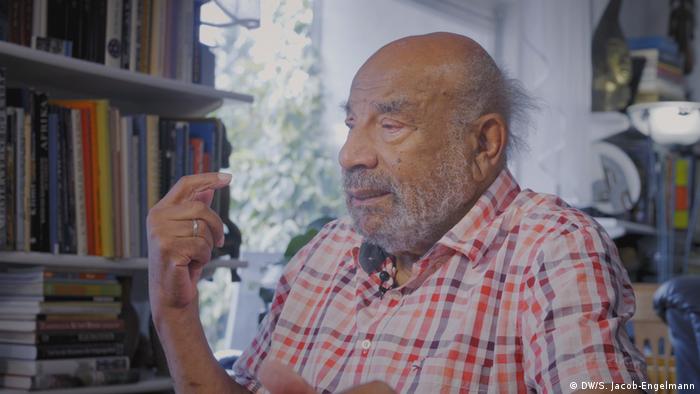Being Black: Still a multi-front struggle |
Being Black: Still a multi-front struggle
DW
2017-04-07
A particular excerpt of the DW documentary “Afro.Germany” went viral: the touching testimony of one of the oldest Afro-Germans born in Berlin. Here’s what can be learned from social media users’ hundreds of reactions.
“I am an African – I didn’t even know Cameroon and Togo were German colonies,” said one social media user, reacting to an online video clip about the life and times of Theodor Wonja Michael, one of Germany’s oldest contemporary witnesses.
The clip is an excerpt from “Afro.Germany,” a documentary project by Deutsche Welle, which aims to chronicle the diversity of Black experiences in Germany and challenge the historical amnesia surrounding Germany’s colonial past.
The video narrates Michael’s extraordinary experiences as a Black person in Germany.
Born in Berlin in 1925, Michael was forced to act in “human zoos” during his childhood. He survived the Nazi era and later became an actor and author…
…A further challenge: fluid identities
However, subsequent analysis by researchers such as E. P. Johnson, has drawn attention to the more troubling implications of Black identity politics.
Black pride can inadvertently promote the problematic notion of Black authenticity – that is to say, it can construct an image of the the “real Blacks” and the “real” Black experience, to which the individuals must conform and relate. This line of thinking can hinder efforts geared towards separating identity from race.
For example, one commentator insisted on referring to Michael as “mixed-race” and denounced the acceptance of “trans-racial crap.”
Race does not define us, but it does influence our experience of the world. Needless to say, “Black” includes a spectrum of peoples whose experience of race varies depending on the interaction of other factors, such as class, culture, gender, nationality, etc. For many people, race is not a black and white issue, but a multi-front struggle for inclusion in their “own” communities.
“My mother was French, my father was American […] Being light skinned, I fought blacks because I wasn’t dark enough. I fought whites because I was colored. Fought Spanish, Puerto Ricans because they said I was a ‘wanna be’ and fake,” said one commentator…
Read the entire article here.
Tags: Afro-Germans, Deutsche Welle, DW, Germany, Theodor Michael, Theodor W. Michael, Theodor Wonja Michael